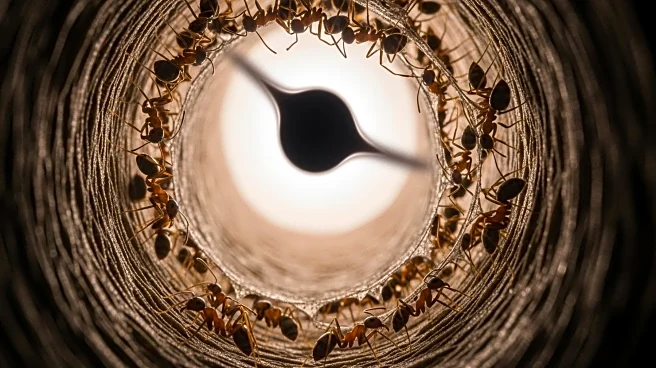What's Happening?
Recent scientific discoveries have highlighted significant developments in biology and astronomy. Researchers have found that the Iberian harvester ant species clones workers from another species, using stored sperm to produce hybrid workers. This discovery was made through genomic analyses across Europe. In another breakthrough, astronomers have identified a primordial black hole candidate, potentially formed in the early universe. This finding challenges existing theories of galaxy formation, suggesting that black holes may form before their host galaxies. These discoveries were reported by international research teams and published in reputable scientific journals.
Why It's Important?
The discovery of ant species cloning workers could have implications for understanding evolutionary biology and species interactions. It challenges traditional views on reproduction and colony formation in ants, providing insights into genetic and ecological dynamics. The identification of a primordial black hole candidate could revolutionize our understanding of the universe's formation. It suggests that black holes may play a more significant role in galaxy development than previously thought, potentially altering theories of cosmic evolution. These findings contribute to the broader scientific knowledge and may inspire further research in both fields.
What's Next?
Further research is expected to explore the mechanisms behind the ant species' cloning process and its ecological impact. In astronomy, scientists will likely continue to investigate the characteristics of primordial black holes and their role in the universe's evolution. These studies could lead to new theories and models in both evolutionary biology and astrophysics, enhancing our understanding of natural phenomena and the cosmos.









